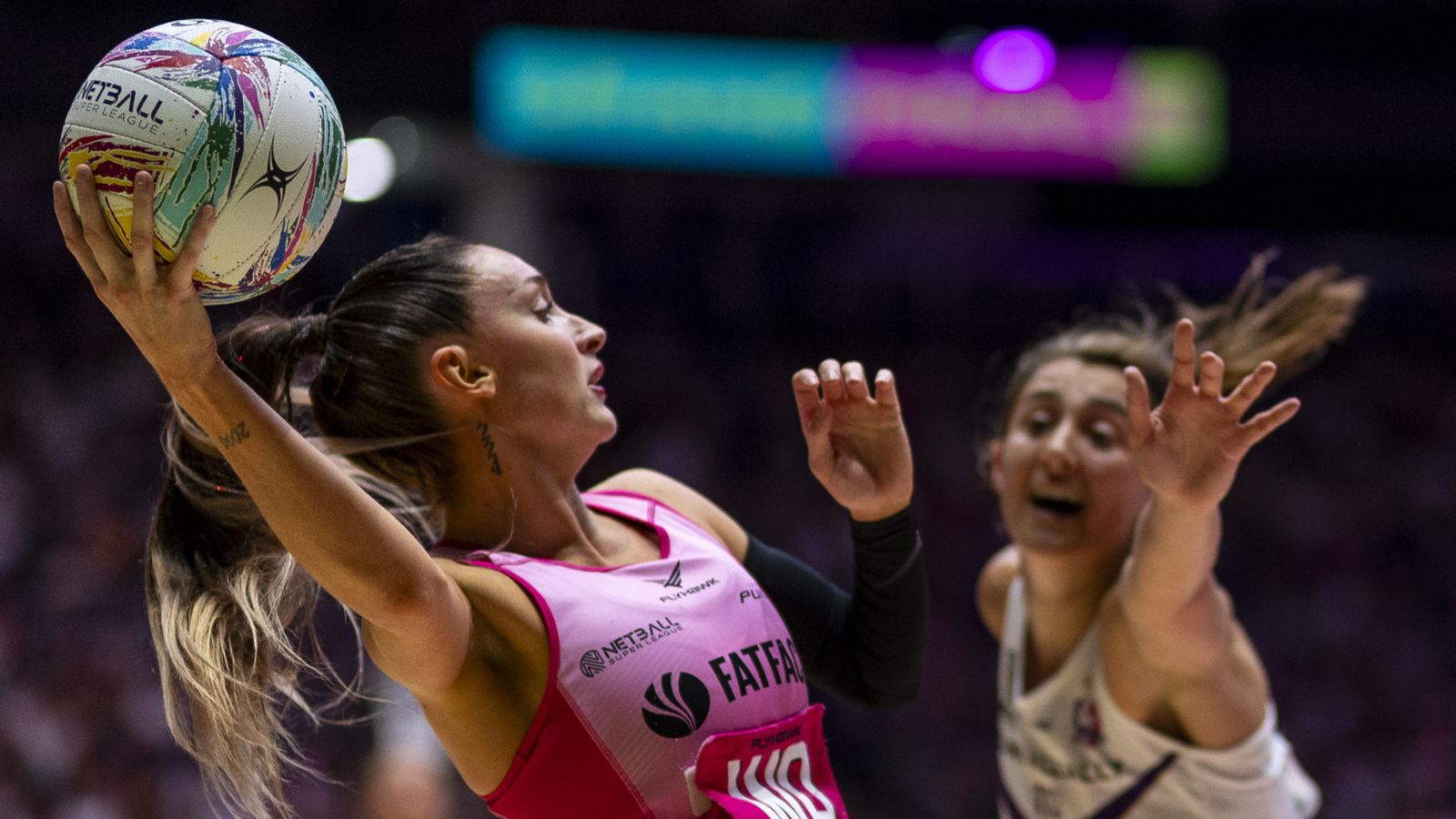Football, they say, is a simple game. But not for some of the world’s most successful coaches. They see football as beautifully – and maddeningly – complex. It is why many have turned to the 104-year-old French philosopher Edgar Morin for inspiration.
Morin is regarded as the father of complex thinking and his influence extends well beyond football. It can be seen in how legendary coaches such as Pep Guardiola and Jose Mourinho perceive their roles, his theories continuing to help shape the modern game.
In Argentina, Cesar Luis Menotti, the 1978 World Cup-winning coach, gave a Morin book as a gift to Mauro Navas, Boca Juniors’ youth coach. Matias Manna, Argentina’s analyst during their 2022 World Cup win, claims to have “fallen in love with” Morin’s ideas.
In Portugal, he is a reference for understanding the game, studied among the coaching schools in Madeira, Lisbon and Porto. Mourinho’s methods have been likened to Morin. Leonardo Jardim, Monaco’s title-winning coach in 2017, even met with the philosopher.
Jardim says that “Morin helped me to build my methodology”, while his assistant Nelson Caldeira goes further. “The common background among Portuguese coaches, this whole idea of complexity,” he tells Sky Sports, “It has its roots in the ideas of Edgar Morin.”
Acacio Santos, another Portuguese coach, part of Nigeria’s staff at the last Africa Cup of Nations, came to Morin through a different route. “It was in Barcelona, where I did my degree,” he tells Sky Sports. “I learned about Morin in the classes of Paco Seirul·lo.”
Seirul·lo is ostensibly a fitness coach at La Masia but that barely scratches the surface of his impact on Barcelona. He is regarded as the keeper of the flame, the father of the club’s methodology. And Seirul·lo himself says: “Edgar Morin is the father of all this.”
He is referring to this idea of complexity. But what is it and why does it resonate so powerfully with some of the smartest minds in football? For them, it helps make sense of a sport that, compared to many others, has an unusual number of moving parts.
Golfers can play the course. Darts players the board. Even doubles tennis has only two opponents to deal with. Team sports lend themselves to greater complexity because the movements of your own team-mates and the opposition are in constant flux.
The possibilities are endless, no two scenarios the same. If that throw-in went the other way in the first minute then the next 90 could have played out completely differently. For coaches, the urge is to simplify all this, to bring an element of control to the chaos.
“A lot of coaches try to simplify things,” says Santos. “In Portugal, coaches like Carlos Queiroz and Jesualdo Ferreira in the ’80s did an interesting thing – they simplified the complex structure of football. Four principles of attack. Four principles of defence.”
Those coaches devised rules for where players should stand and what they should be doing in those positions, even how their bodies should be positioned. “I took on all that information. It was amazing. But you learn to simplify things too much,” says Santos.
“Football is complex. Edgar Morin helped me to understand and accept this. I did not want the recipe. I did not want the pill. I wanted to understand the why behind it. That is why I went to Barcelona. And I found the answers from listening to Paco Seirul·lo.”
Santos remembers visits to La Masia and classes with Seirul·lo that opened his eyes. He would usually sit in the middle rows. For Seirul·lo, after the first class, he moved to the front. “I thought I was going to learn about muscles. But he spoke about society.”
There were guest lecturers too. He recalls a conversation with Juanma Lillo, Guardiola’s long-time assistant and mentor. “He came to one of Paco’s classes to explain his way of seeing society and the game.” Afterwards, they had an illuminating conversation.
“As a coach, I was always trying to control everything. I talked to Lillo about how I was building my team in the fourth division of Portugal. He told me that I was obsessed with control and that you cannot hope to be a good coach if you are obsessed with control.
“He said to me, ‘the beauty of our role is to provide the uncertainty, to provide the chaos. And from the chaos we bring the organisation. And then again the chaos. And then you bring the organisation. Then again the chaos. And then the organisation…'”
Speaking to Alfonso Montuori, a professor at the California Institute of Integral Studies, who has introduced a book of essays on complexity by Morin, he breaks down why coaches are drawn to these ideas. It is that balance between order and disorder.
“His work can seem really abstract, because it is about a way of thinking that does justice to the complexity of life,” Montuori tells Sky Sports. “But when you apply it, it can help you to see the world in a different way that makes enormous sense.”
He adds: “Fundamental to Morin’s work is the idea of complexity and that the way we think about that the world tends to simplify excessively.” And that way of thinking goes far beyond football. It can be applied to almost any aspect of human life.
“You often see reductionism, people focusing on one thing at the exclusion of everything else. You see people blame immigrants for a country’s woes or they say that if only they had a girlfriend, money or fame their life would be good. It is more complex.
“Thinking about complexity means staying aware of the context, of the connections, the interactions, dealing with the unforeseen, improvisation, and that all our certainties can go be blown out of the water before we are even aware of it.” Embracing the chaos.
“For Morin, disorder can also be an opportunity. Organisation becomes more fluid. The point is that it is not fixed. Any organisation needs to be able to reorganise and keep the environment – or the opponent, in this case – in mind, rather than work in a vacuum.”
Montuori is an expert on Morin but, helpfully, he is also a football fan. Born in the Netherlands, he grew up watching the great Ajax team and his favourite player Piet Keizer. Morin’s concepts can be related to the balance between team and individual.
“Morin argues that we must think about both, it’s not either or.” It is not about suppressing the individual for the sake of the team. “Does that mean I should lose my identity for the team? Are you going to say that to Messi or Pele or Cruyff? It is team and player.”
Likewise, it is not attack and defence, it is both. Santos remembers seeing a headline in the newspaper Sport when he was in Barcelona, watching Guardiola’s side, that claimed Barcelona were more compact than ever defensively. He put it to Seirul·lo.
“He said, ‘we are not more compact. It is exactly the opposite. We are more plastic. We are more flexible. We have more freedom and less control’. But what the hell? How can you have less control but control the space better and concede fewer goals?
“Now I understood that the best team in the world, probably one of the best in the history, was more plastic than others, and this plasticity was one of the reasons they could defend better. A light went off in my brain. I realised that football was complex.”
Caldeira had a similar epiphany when embarking upon his own journey into the ideas of Morin. “The idea that an organisation cannot be reduced to a single player, for example,” he says. “Even Barcelona had to look beyond a fantastic star like Lionel Messi.”
He experienced that for himself at Monaco when they were able to end Paris Saint-Germain’s reign as champions of France – with the help of a teenage Kylian Mbappe. But long before that triumph, there was criticism of their methods, even among the players.
Their first pre-season in charge at Monaco had been very different. “When I had been a player, we ran in the fields to get fit. It was completely separate to the technical work. But the idea of Edgar Morin is precisely the opposite.” So, they went with that instead.
The football came out on day one. “It was bizarre for the players.” And when Monaco started poorly, the journalists had their explanation. “They said our approach was weak because we had not done the isolated physical drills in pre-season,” says Caldeira.
“I remember saying to Leonardo that it was incredible because France should be the last country where these ideas of complexity are questioned, because it is the country of Edgar Morin. In the next press conference, he said exactly this to the journalists.”
Fortunately, history is written by the winners. “We were lucky. We won everything.” Before long, this methodology, built on ideas conceived by Morin, was being cited as a reason for the club’s stunning success. “Edgar Morin himself visited us in Monaco.”
The concept of tactical periodisation – often simplified, ironically, as incorporating the physical training alongside the technical and tactical – is closely associated with Vitor Frade in Porto. Mourinho introduced similar methods to English football with Chelsea.
Caldeira sees all this as strands of the same idea. Starting with Morin. “Vitor Frade was influenced by Edgar Morin. It was a mixture of his experience as a fitness coach and the theoretical ideas of complexity. It is the common background of everyone” he says.
“Luis Castro was influenced by Frade. Jose Mourinho and Marco Silva are closer to the ideas of the University of Lisbon, influenced by a very important professor there called Manuel Sergio.” Mourinho paid tribute to him when he passed away earlier this year.
“If you listen to all the thinkers, the Portuguese school, the Argentinian school, you will always find that root.” In Spain, the same intellectual process was happening. “All of the physical studies to improve strength and speed were not from football,” says Santos.
“When you understand complexity, you understand that you have to prepare the players for complexity. No two dribbles are the same. You are training for linear actions but football is full of non-linear actions. It is why Paco Seirul·lo never repeats an exercise.”
This infinite complexity is part of football’s appeal. “To understand football is simple but because of the number of interactions, the depth of it and the level of analysis never ends,” concludes Caldeira. “That is why I am still so in love with the game.”
Santos agrees. “It is amazing for me now. Instead of having the recipe, I have to start thinking. In football, there is so much information, so much to consider. It is difficult to feel comfortable with that complexity. But now I feel comfortable with the chaos.
“All because of Edgar Morin.”










Leave a Comment